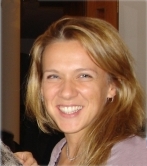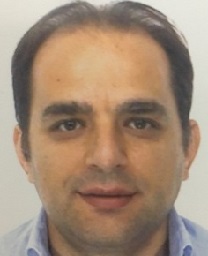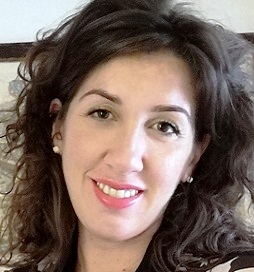Introduction
Clinical practice
The Rizzoli Institute Unit of Functional Recovery and Rehabilitation focuses on assessment and rehabilitation of orthopaedic disorders, including:
- Conditions of the shoulder, elbow, hip and ankle after complex or innovative reconstruction surgery (primary implant of endoprosthesis and arthroprosthesis or revision of implants, resurfacing prosthesis)
- Orthopaedic oncologic surgery
- Spine disorders conservatively or surgically treated (scoliosis, kyphosis, vertebral disk disorders)
- Orthopaedic disorders secondary to neuro lesions in childhood
- Rehabilitation in patients treated by Ilizarov limb lengthening
- Complications from obstetric paralysis
- Primary and secondary osteoporosis in orthopaedic disorders
- Paget’s disease of bone
- Sudek’s algodystrophic syndrome or Complex Pain Regional Syndome (CPRS)
- The use of botulinum toxin in neuro-orthopaedics
Organization
The services offered comprise:
- Inpatient intensive rehabilitation in the rehabilitation ward
- Intensive rehabilitation in “Day-Hospital”
- Consultancy for rehabilitation of patients hospitalized in the orthopaedic wards and specific rehabilitation programs (e.g. for femur fractures in the elderly)
- Outpatient rehabilitation clinic for adults and patients affected by orthopaedic disorders of infancy and childhood
Intensive rehabilitation ward (cod. 56)
The ward has 15 beds organized in 3 rooms with 4 beds and 1 room with 3 beds. Patients are hospitalized either through the National Health System or in private practice. Routine hospitalization focuses on rehabilitation of patients surgically treated at the Rizzoli Institute Orthopaedic wards who require 24-hour continuous nursing and medical care.
In particular, patients who undergo surgery for:
- Revision of hip and knee prosthetic implants
- Prosthetic implants in complex diseases (hip dysplasia, severe rheumatic diseases, neurologic diseases, muscular diseases, genetic diseases, achondrodysplastic and metabolic syndromes)
- Prosthesis for disarthrodesis of hip and knee
- Hip implant removal
- Lower limb prosthesis in amputations and training for its use
- Synthesis of fractures for large skeletal segments (eg: pelvic fractures) or fractures of the limbs (eg: femur fractures)
- Resection and reconstruction of the musculoskeletal system for oncologic diseases
- Vertebral stabilizations or other vast spine surgery
The patient is assessed and an individual rehabilitation project (PRI) with the aim of recovery functional independence is programmed. The team participating in the project consists of physicians, physiotherapists, nurses and other healthcare professionals; each contributing to reach the objective in the shortest time possible. Rehabilitation consists of two daily sessions (morning and afternoon) directly performed at the patient’s bedside or in the equipped gym in the hospital. During hospitalization, patients are also educated by the staff to a progressive recovery of independence in their daily life activities (ADL).
The presence of a physician is guaranteed in the ward Monday to Friday from 8.00 a.m. to 8.00 p.m. and to 2 p.m. on Saturday. General Rounds take place on Wednesday.
Outpatients rehabilitation
The physiotherapy clinic deals exclusively with the rehabilitation of patients treated surgically in the orthopedic divisions of the Institute, thus ensuring the therapeutic continuity necessary to guarantee the success of the intervention carried out.
Physiotherapy is provided in the NHS system with bi-weekly intervals by appointment by a physiatrist of the facility.
In particular, the following pathologies are treated:
- Periarticular lesions of the shoulder treated surgically;
- Upper limb pathologies operated on endoprosthesis, anatomical arthroplasty, resurfacing prosthesis and prosthesis with reverse shoulder anatomy and elbow prosthesis;
- Complex knee injuries subjected to biological reconstructions and "bank" tissue;
- Functional sequelae in complex limb fractures complicated by secondary pathologies (paralysis, algodystrophia, infection, pseudoarthrosis);
- Outcomes of hip and knee arthroplasty.
Rehabilitation at the Rizzoli Institute Orthopaedic Wards
The Structure provides postoperative rehabilitation from the very beginning for patients hospitalized in the Orthopaedic Wards
Within 24 working hours from the orthopaedic surgeon’s request, patients are assessed by the physiatrician, who fixes a rehabilitation program. Physiotherapists perform treatment twice daily at the patient’s bedside and in the dedicated areas.
For patients who on dismissal are transferred to other rehabilitation structures the physiatrician prepares a clinical report. Patients with complex rehabilitation problems are transferred to the Rehabilitation ward within the Institute (see ordinary hospitalization)
Whenever necessary the physiatrician together with the welfare officer study the best solution for tailored rehabilitation after dismissal from the Orthopaedic ward, taking into consideration the availability offered for rehabilitation in the region of competence.
On request of orthopaedic surgeons, general surgeons or anaesthetists the following examinations are performed to complete clinical and diagnostic staging of in- or outpatients:
- Spirometry
Rehabilitation follows specific diagnostic and therapeutic pathways in the wards of:
- Pediatric orthopaedics for childhood complex disorders.
- Orthopaedic oncology and chemotherapy for complex and peculiar reconstruction surgery performed on frequently young patients with high a functional expectancy.
Research Activity
Research activity in the Rizzoli Institute Unit of Functional Recovery and Rehabilitation mainly focuses on:
- Trials in orthopaedic disorders treated with innovative surgical techniques
- Functional evaluation after complex surgery in musculoskeletal tumors
- Diagnostic-rehabilitation pathways in complex orthopaedic disorders and evaluation of outcome
- Rehabilitation and pharmaceutical pathways in neuro-rehabilitation and evaluation of outcome
- Evaluation of efficacy of new drugs and effectiveness of rehabilitation in pain from orthopaedic disorders
- Evaluation of instruments for impairment and disability rating
Staff


Contacts and Locations
Secretary's Office (ward clinic)
phone +39-051-6366838
fax +39-051-332392
e-mail fisioterapia@ior.it
Secretary's Office (inpatient ward)
phone +39-051-6366359
fax +39-051-332392
Istituto Ortopedico Rizzoli
via G.C.Pupilli, 1
40136 Bologna (Italy)


